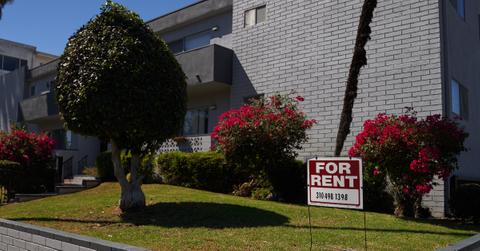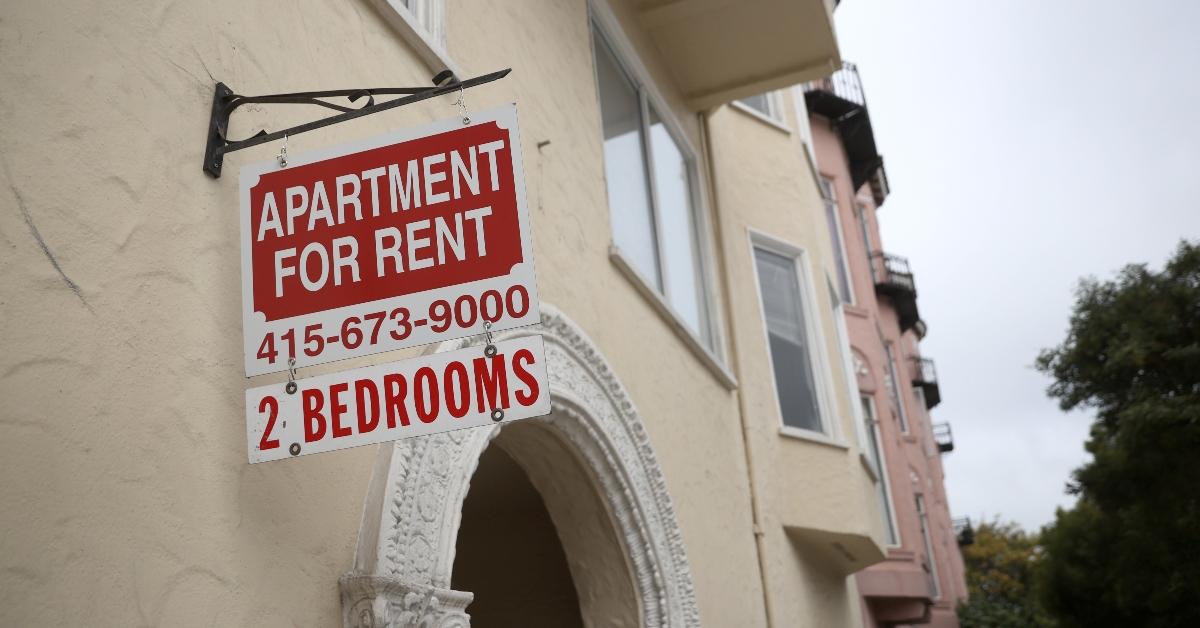Why Isn't Rent Tax Deductible? How to Save on Taxes as a Renter
With all the money you’re spending on rent, you may wonder why rent isn't tax deductible. Unfortunately, the tax deductions on your rental property go to someone else.
Oct. 20 2022, Published 12:45 p.m. ET

One of the benefits of owning a home over renting is the tax deductions you receive. As a homeowner, you can deduct your property taxes, mortgage interest, and other costs from your annual tax return.
However, with the price of homes at an all-time high, many people opt to rent. Rent prices have also skyrocketed in 2022 as landlords try to capitalize on the high demand for housing from people who can’t afford to buy a home right now.
With all the money you’re spending on rent, you may wonder if you can write off your rent. Sorry, we have some bad news. Keep reading to find out why rent isn't tax deductible and how you can save on taxes as a renter.

Why isn’t rent tax deductible?
The rent you pay for your apartment or house isn’t tax deductible to you as a renter, but it is to the owner of the property. The property owner pays the mortgage payments, property taxes, and other costs for the apartment building or home you live in, so when tax time comes around, they are the ones that can deduct those expenses from their tax return.
Renters may be eligible for tax credits.
However, as a renter, there are tax credits that you may be able to take advantage of, depending on the state where you live. These tax credits may be more beneficial to you than a tax deduction.
Tax credits differ from tax deductions in that a credit reduces how much you owe, so it could mean you get a larger tax refund. With tax deductions, you deduct the amount from your taxable income, which could put you in a different tax bracket. A deduction only reduces your taxes if it helps you get into a lower tax bracket.

How do you get a renter’s tax credit?
Not all renters are eligible to receive tax credits. Eligibility requirements vary depending on the state that offers the credit. Some states may require renters to be within a certain household income threshold.
For example, renters in Wisconsin can claim a “homestead credit” and receive a credit of up to $1,168. But they must have a household income of less than $24,680 to qualify for the credit.
There are specific requirements that are standard in all states that offer renter's tax credits. According to Rent.com, the baseline requirements for a renter’s tax credit are:
Your name must be on the lease.
You must pay your rent.
You must be a resident of the state where you are renting.
You aren’t listed as a dependent on anyone else’s taxes.
The property owner has been paying their property taxes.
You may qualify for a rent tax deduction if you are self-employed.
The only time you can deduct your rent from your taxes is if you work from home. Self-employed renters can take a tax deduction for their home office.

The home office deduction doesn’t apply to company employees working from home full-time or part-time, which became more popular after the COVID-19 pandemic.
If you're eligible for a home office tax deduction, you can’t deduct your entire rent, only the area of your rental home that is your designated work space. While these tax breaks might not be quite the same as the ones homeowners get, be sure to check out all the credits and options available to renters in your state before filing your taxes.
